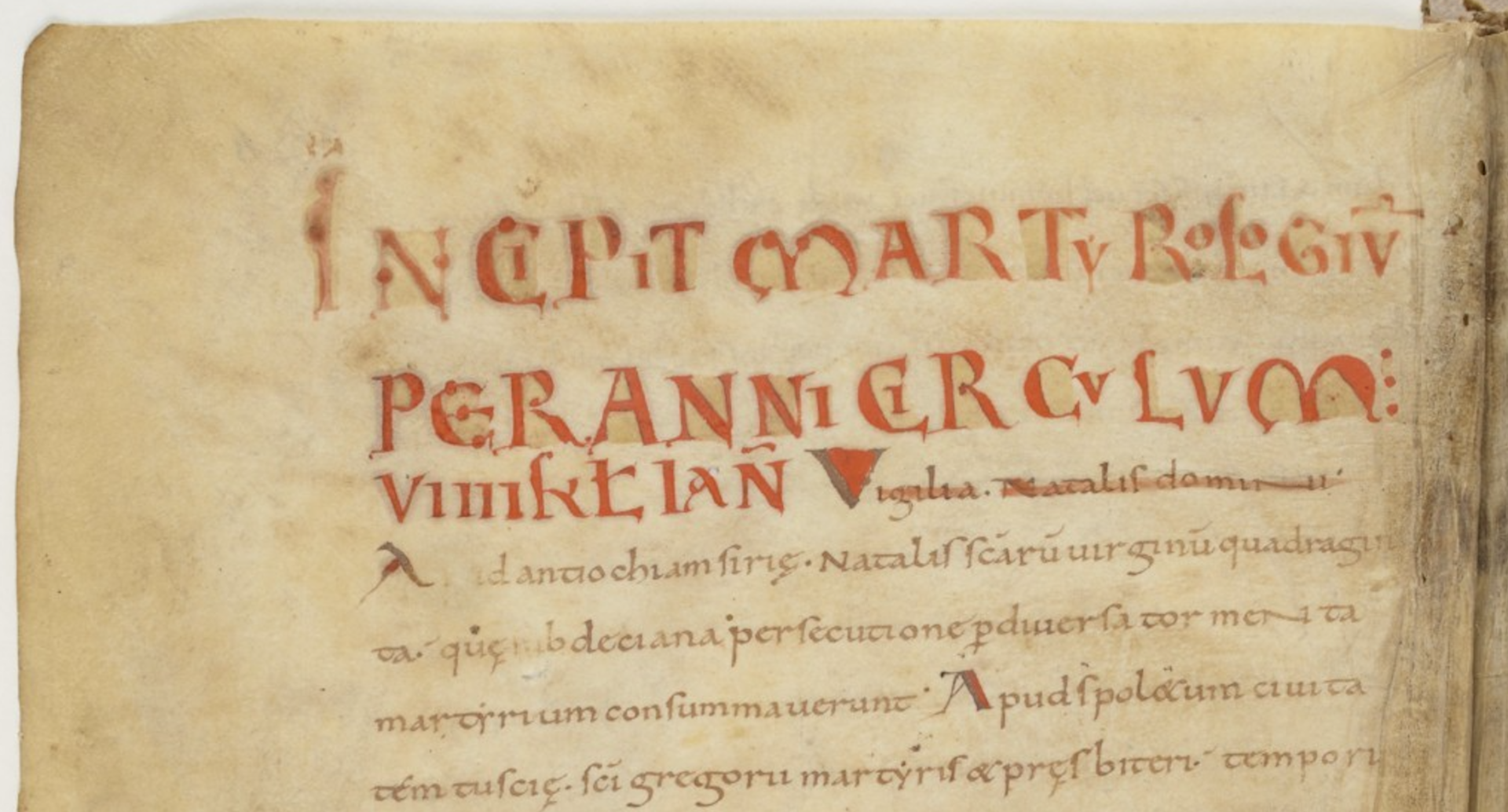
In a series of articles, we will be asking our supervisory teams to tell us a little more about the project they are advertising and why you should apply. First up are Prof. Alice Rio and Dr Ed Roberts, with their project, Remembering the Martyrs.
What is a martyrology, and who was Usuard?
A martyrology is essentially a liturgical calendar listing the names of saints and martyrs whose feasts are to be commemorated throughout the year. In the early Middle Ages, such calendars were expanded to include brief biographical entries; these texts are often known as ‘historical martyrologies’. Numerous historical martyrologies were produced in the ninth-century Carolingian Empire, but the most influential was that composed by Usuard, a monk of Saint-Germain-des-Prés in Paris (d. 879). Usuard is well known for having journeyed in 858 to Cordoba, where about 50 Christians had recently been martyred under the Islamic authorities. Usuard brought back relics of some of these holy men to Paris. In composing his martyrology, he researched a very wide range of sources, including earlier martyrologies and calendars and hundreds of saints’ lives. His work contains brief entries on more than 2,000 saints, ranging from Old Testament prophets to the recent Cordoban martyrs, spanning the known world from Asia to Ireland.
What is exciting and new about this project?
This project offers a doctoral researcher the chance to become a leading expert in a popular narrative form that is very familiar to medievalists but which has been surprisingly under-researched. The focus is less on Usuard and how he compiled his martyrology (which have been relatively well studied, thanks to the survival of what is most likely an autograph manuscript), and more on how this text was used in the generations that followed. Its reception on the continent is poorly understood, partly because martyrologies tended to be excerpted, blended and augmented by later redactors. Yet as this partial handlist indicates, the work was extremely popular. We don’t expect the student to tackle the entire manuscript tradition; rather, they will work with us to define appropriate parameters for the study. Detailed investigation of the afterlife of Usuard’s martyrology will cast new light on how individuals and communities in the ninth to twelfth centuries ordered historical, liturgical and geographical knowledge, and how they situated their localities within universal frameworks of Christian time and space. This research will demonstrate the important but hitherto overlooked role played by martyrologies in the development of historiography and hagiography in the post-Carolingian centuries.
What kind of skills does this research require, and how will the project develop a student’s skillset?
We think this is a great project for someone who has gained some Latin and palaeography skills at Master’s level and is looking to develop these further. The bite-sized biographical entries in martyrologies are relatively easy to understand, thus providing an accessible route towards the development of advanced Latin expertise. The researcher will primarily be consulting manuscripts written in Caroline minuscule, so some familiarity with this script will be helpful. The ability to read modern scholarship in French and/or German will also be important, though this is something that could be developed through the support of the Knowledge Orders project training fund. In addition to gaining expertise in core linguistic and palaeographic skills, this is an excellent opportunity for a medievalist to develop critical skills for the digital age. The mass digitisation of manuscript collections and catalogues now make a study of Usuard’s reception more feasible than ever, and the successful candidate will learn not only of the great possibilities but also the potential limitations presented by digital repositories and media for palaeographic and historical study. In addition, the wide geographic horizons of martyrologies will enable the researcher to contribute to the ongoing revision of traditional Eurocentric views of the Middle Ages.
Image credit: Usuard’s martyrology, Paris: BnF, MS lat. 13745, f. 4v (detail)
